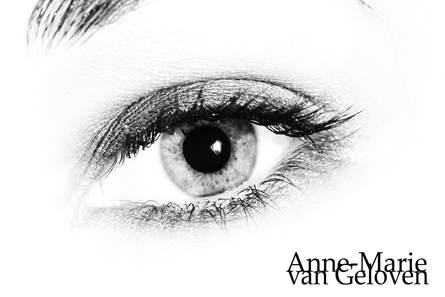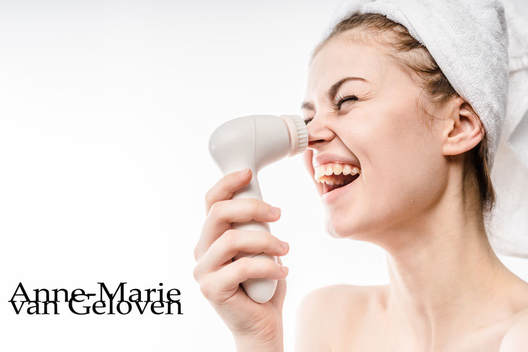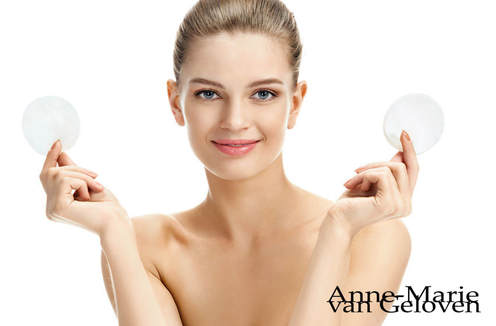
We all learned that sleeping in make-up is the ultimate skincare sin. What is bad about it is when you go 24 hours without washing your face and end up going to bed leaving your day-time make-up on. Over the course of the day, our skin accumulates pollutants, dirt and dead skin-cells.
If dirt and pollutants are left on the skin, they may cause micro-inflammation and contribute to premature ageing skin via a process called inflamm-aging and free-radical damage which is a major contributor to skin-ageing. The combination of both micro-inflammation and free-radical damage is called ox-inflammation. We should aim to reduce or preferably avoid it. Pollution, dirt and sebum (oils) can impact the skin's healthy pH balance and thus lead to a weakening of the skin barrier function, more sensitive skin, dehydration, slowed down skin-cell renewal process and thus ageing. Not removing dead skin cells together with dirt increases the risk of clogged pores. Make-up itself usually doesn’t contain harming ingredients. Coloured micro-pigments actually provide additional sun-protection. Make-up or foundation itself is thus not the problem, however the fact that we don’t cleanse our skin after a busy day and/or evening is what could make us age faster. Not doing your PM cleanse and care routine is anyway a missed opportunity to support your skin’s night-time recovery with beneficial active ingredients. If you go out in the evening, take the opportunity to cleanse before getting ready and get rid of debris which was accumulated during day-time. Don’t worry about falling asleep in your make-up once or twice. Just don’t make it a habit. I would always aim to remove eye make-up. Sleeping in full eye make-up (mascara, liner, eyeshadow) increases the risk of an eye-inflammation, redness and corneal abrasions. Waking up with “panda-eyes” filled with black rheum or goop isn’t pretty either. Take care
Comments

One of the frequently asked questions is, if it's necessary or if there is a benefit using a special eye care or cleansing products. Yes, there is!
As I mention in many of my previous posts, the right pH-level is very important for healthy skin. Skin usually prefers a pH of around 5. However there are some area's where the skin's natural pH balance is a little bit different. One of those area's is the area around the eyes. The preferred pH-level there is around 7, thus less acidic and more alkalic in comparison to your regular cleansing or care product for face or body. This is one of the most important reasons why I would recommend to use a special eye make-up remover and eye care product, as they are adjusted to the pH level most suitable for use in the eye area. Furthermore, special eye products are tested and proven to be safe when used around the eyes, while it isn't always recommended or proven for a regular face product. Some care products have a tendency to "travel" or migrate into the eye area. Even when not directly applied around the eyes, they might end up there. A special eye care product can form a "barrier" and thus help to prevent that unwanted products move to the eye area and cause irritation. I would particularly recommend the use of an eye cream when using other products containing gold standard anti-ageing active ingredients like Vitamin A, C (or derivatives of both), Hydroxy Acids (Alpha, Beta or Poly), when you have experienced some sensitivity of the eyes or eye area in the past or have a more problematic skin type. Eye care products preferably should not contain Vitamin C (L-Asorbic Acid or related) as it requires a low pH value of <4 to be active and do it's job properly. Eye care products with Vitamin C therewith are either too acidic to be used in the eye area or alternatively too alkalic for the Vitamin C to be effective. Safe to use in the eye area are products containing Hyaluronic Acid. Although "Acid" is in the name, Hyaluronic Acid isn't acidic. One of it's key functions is attract and bind water, which usually has a pH of ~7. Take care! 7/22/2018 Comments Chemical or mechanical exfoliation
We can support's skin natural exfoliation process in various ways, for example with mechanical or chemical exfoliation.
Desquamation (shedding of skin cells thus exfoliation) is an important part of the skin's natural regeneration or renewal process. Already in our twenties, this process slightly, however increasingly starts to slow down (Kligman 1983). As a result, the cells on the surface of our skin (corneocytes) become bigger (Kligman 1989) and a little disorganised. This leads to a duller appearance (loss of radiance) and a more rough texture of our skin. A very comprehensive comparison of both methods:
The word "acid" unfortunately sounds very harsh and skin-unfriendly. Many acids are actually skin's own, like for example lactic acid is a skin's own natural moisturising factor (NMF) and so is hyaluronic acid. The level of NMF's decrease as we age and our skin my lose the ability to maintain well hydrated. Many years ago the benefits of lactic acid were capitalised by using baths filled with donkey milk. Citric acid is commonly used in skin care products and toners to balance skin's pH. Gluconolactone is only gradually penetrates skin and is very gentle.
It's unfortunate that "acids" have such a negative connotation, as our skin (healthy and problematic) can benefit if we use them regularly. Moreover, I prefer this method over mechanical exfoliation for all skin types, however particularly if you have dry skin, acne- or redness prone skin, sensitive skin or mature skin. The risk of exfoliation is over-exfoliation. Over-exfoliation is damage of our skin barrier and the symptoms are very comparable to dry or (hyper) sensitive skin symptoms, which are: redness, irritation, tightness, excessive dryness, dry patches, flaking skin, uncomfortable stinging, or even burning sensation. Whenever you experience one or more symptoms of over-exfoliation, it's recommended to reduce the number of times you exfoliate and support the skin barrier repair with a moisturiser. Hope you enjoy healthy skin & take care. 7/10/2018 Comments Facial toners redundant?
Recently I've read an article in which facial toners were called a redundant step in the cleansing routine. They would not serve any purpose anymore and would be “old-fashioned". I disagree, and will explain why.
Particularly when you prefer wet facial cleansing (water has a pH of 7-8), your skin’s pH goes up and you may consider using a toner to bring it back to normal (~5) before using a moisturizer or serum. This also applies if you use an alkaline cleanser or micellar water. It is common that products which are suitable to be used around the eyes, like micellar water, are adapted to a more “eye-friendly” and less “skin friendly” pH of ~7. Skin prefers a pH of ~5. In my humble opinion, toners are a very important step in every a.m. and p.m. skin care regimen for both healthy and particularly problematic skin types. They refresh, remove left-over debris and make-up and moreover instantly rebalance skin’s pH value. A balanced pH value is the cornerstone for healthy skin. An optimal pH supports skin's microbiome (microflora or "ecosystem") and barrier function. Furthermore, the use of a toner usually helps the penetration and thus efficacy of your care product! Alternatively, you can use “chemical” exfoliating lotions or pads which contain AHA (glycol, citric and lactic acid), BHA (salicylic acid), PHA (gluconotactone), etcetera. Just be careful using them around the eyes or even avoid this area. Hope you enjoy healthy skin & take care. |
CategoriesAll Acne Ageing Aquatic Wrinkles Armpits Biostimulators Blue Light & HEVIS Cleansing CoQ10 Cosmetic Intolerance Syndrome Deodorant Dermaplaning Diabetes Dry Skin Evidence Based Skin Care Exfoliation Exosomes Eyes Face Or Feet? Facial Oils Fibroblast Fingertip Units Gendered Ageism Glycation Gua Sha Hair Removal Healthy Skin Heat Shock Proteins Hormesis Humidity Hyaluron Hyaluronidase Hypo-allergenic Indulging Jade Roller Licochalcone A Luxury Skin Care Lymphatic Vessel Ageing Malar Oedema Menopause Mitochondrial Dysfunction Mood Boosting Skin Care Neurocosmetics Ox Inflammageing PH Balance Skin Photo Biomodulation Polynucleotides Psoriasis Regenerative Treatments Review Safety Scarring Sensitive Skin Skin Care Regimen Skin Flooding Skin Hydration Skin Senescence Skip-Care Sleep Slugging Sunscreen Tanning Under Eye Bags Vitamin C Well Ageing Skin Care Wound Healing Wrinkles
Archives
April 2024
|



 RSS Feed
RSS Feed
